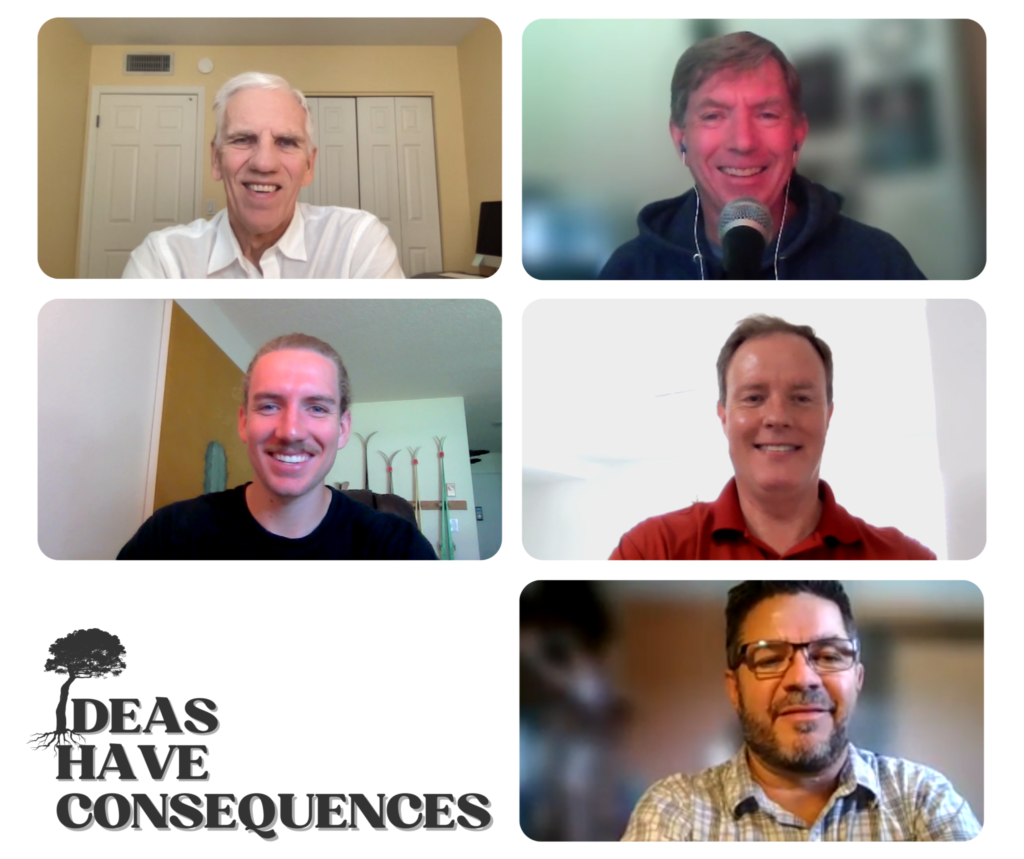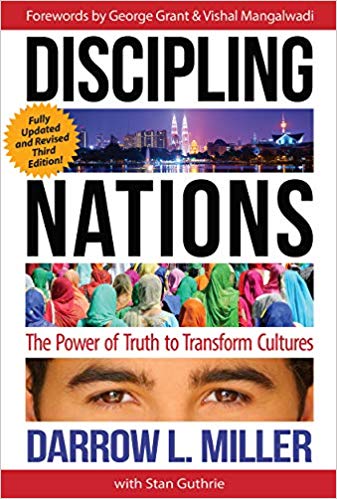At a Glance
The idea of discipling nations is one we often discuss and have built our ministry on, but what does it mean to disciple nations, and why is it so important? God designed not just the individual, but the nation, and he loves both the individual and the nation. God has called us to build and transform nations into the kingdom of God from the inside out. By changing culture, we can make nations conform closer to his design for his kingdom.
For more discussions on Discipling Nations and the Kingdom of God, listen to our episode, “The Role Of The Church.”

What You'll Hear
Chapter 1: What does it mean to disciple nations? What are the consequences? (1:19)
- God has given everyone a role to play in discipling nations.
- Nations were created after Babel, when God split the people by making them speak different languages.
- God’s promise to Abraham is the promise that he will make a great nation that will bless all other nations.
- Genesis shows the creation of nations, and Revelation establishes the final nation, the kingdom of God.
- God wants us to love our nations as a gift he has given.
Chapter 2: How do we disciple the nations of the world? (12:52)
- Evangelicals tend to focus on “saving” the nation (bringing salvation) instead of “discipling” the nation (bringing the nation in line with what God wants and commands).
- We are called to not just bring salvation to the nations, but disciple them as well.
- Nations are made up of a variety of things, it’s politics, culture, economic situation, but most importantly it is made up of families.
- Christians have to affect every area of a nation, instead of just being focused on the salvation of a nation.
- God wants all nations to thrive.
Chapter 3: The gospel of the kingdom vs. the gospel of salvation. (23:38)
- Jesus preached the gospel of salvation and the gospel of the kingdom.
- The gospel of salvation is true and good, but it is not all Jesus taught.
- The gospel of the kingdom is how God wants us to transform all things, not just the soul.
- It is the gospel of salvation but bigger.
- We disciple a nation when it’s culture diverges from God’s culture.
- God want’s nations to be a blessing to other nations.
- There is no such thing as a global culture, only cultures that make up nations.
- God wants us to redeem nations, not abandon them.
Chapter 4: Disciple is a noun and a verb (34:42)
- We are called to be involved in discipling the nations.
- We ourselves do not disciple the nations, but God works through us to disciple the nations.
- We disciple nations from the inside-out.
- When we disciple nations we bring the Kingdom of God to Earth.
Chapter 5: Why we’re not talking about humanism here (47:54)
- Humanism won’t lead to a changed world, but God’s kingdom will.
- We can’t just teach people to be different, we need the Holy Spirit.
- You can’t just change the culture or laws, you need changed hearts.
Chapter 6: The root of these issues are culture and you have to address culture to change the nations. (54:15)
- God cares about all aspects of a nation, not just the spiritual side.
- All aspects of a nation flow downstream of culture.
- If you change the culture, you change the nation.
- The Church has given up on controlling the culture, and Marxism controls the culture now instead.
Chapter 7: How the British came from a very low point to a much better point. (1:00:14)
- The British are an example of how God discipled a nation.
- The British before the Wesleyan Revivals was a nation full of sin.
- God through people like Wesley discipled the nation.
- Later people like William Wilberforce changed the culture in specific ways to bring it more in line with the Kingdom of God.
- Even now England is impacted by the ways God discipled the nation of Britain in the past.
Chapter 8: What should rightly motivate us to disciple nations? What should not? (1:08:12)
- We don’t disciple nations for our own benefit or on our own.
- God disciples the nations through us, without him we wouldn’t be able to do anything.
- We disciple nations out of love for our neighbor and obedience to God.
Chapter 9: We are a part of a collective group (1:13:49)
- We all contribute to our nation and it’s culture, both good and bad
- We need to take responsibility for both the good and bad in our nation as our personal responsibility
Using the link above, you can read the transcript, listen along, and adjust the speed of the podcast while you listen.
As Christians, our mission is to go out and spread the gospel around the world to all the nations. But that's not all of it. It also includes transforming the nations.
Luke (13:12)
Go Deeper
Kingdomizer Training Program
The transformation of our communities and nations begins with each of us. Kingdomizers are individuals who advance the truth, goodness, and beauty of God’s Kingdom in the world in which they live. Our unique Kingdomizer Training Program is designed to equip you and your church to live out Christ’s truth and redemptive love in transforming ways.
Discipling Nations
By Darrow Miller
Quotes
“Every one of us has a role to play in this. I think, again, people can think “oh, this is for Pastors, or this is really for the leaders of a nation, these kind of high-level leaders. It’s up to them to do this work. But no, our belief is that God has given everyone a role to play in this.” Scott (4:17)
“I love what you guys were saying a minute ago about what is a nation, and how that goes so much beyond politics or borders, and it goes into every area, music, the arts, food, sports, all of these different areas. So that is what makes up a nation. So if you work, or do anything in any of those categories, you have the opportunity to disciple that area, and therefore, you are discipling your nation.” Luke (22:14)
“That’s why Jesus went to twelve very normal apostles, instead of going straight to Caesar, instead of getting on a boat, traveling to Rome and saying, I’m gonna convert the top guy here, and we’re gonna have a changed world. He started with these 12 fishermen.” Dwight (48:40)
“Can I point to you a discipled nation? No. But I can point you to examples of nations that have been discipled. In the sense that the truth, the goodness, and the beauty of God has made a real impact. It’s changed the laws. It’s changed the policies. It’s changed the way people are treated.” Scott (1:00:03)





